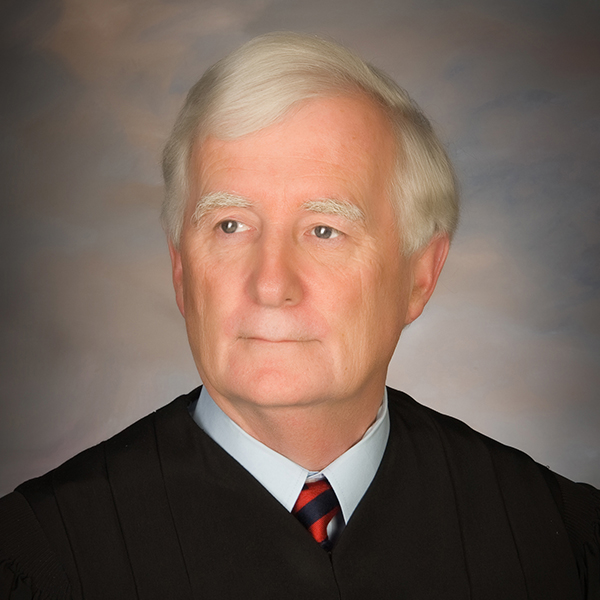Honorable Harvey Hoffman
Judge Harvey Hoffman (Ret.) has spent almost two decades as a DWI Court Judge in Eaton County, Michigan. He was the primary author of Michigan’s Drug Treatment Court Statute and co-author of that state’s Veteran’s Treatment Court Statute. He was the principal author of Michigan’s DWI Court Ignition Interlock Law which allows repeat DWI offenders to receive substantial restricted driver’s licenses if they are in a DWI Court and have ignition interlocks on their vehicles. That statute has helped to increase the program compliance rate of repeat offenders in Michigan DWI Courts from 66 % to 89%. That statute has allowed participants to lawfully drive between jurisdictions for court sessions, treatment and testing. This has allowed Michigan to create the nations’ most successful Regional DWI Court system, with eighty percent of the state’s jurisdictions now being covered with operating DWI Court programs. He is now the Legislative Director for the Michigan Association of Treatment Court Professionals.
Judge Hoffman has spoken nationally and internationally on a variety of substance abuse and highway safety issues. He has served on the Board of Director of the National Association of Drug Court Professionals (NADCP), Chaired the National Association of Drug Court Professionals DWI Court Committee, was a founder of the National Center of DWI Courts (NCDC), served as the ABA/NHTSA Judicial Fellow, and serves as faculty for the National Judicial College and the National Drug Court Institute. He is the recipient of awards and honors including, but not limited to: The Executive Office of the President Office of National Drug Control Policy Special Recognition Award, MADD National President’s Criminal Justice Award, NADCP Distinguished Board Service Award, Foundation for Advancing Alcohol Responsibility Kevin E. Quinlan Award for Excellence in Traffic Safety, Michigan District Judges Association Judge of the Year and Michigan Lawyer’s Weekly Leaders of the Law.
- DWI Courts
- Drug Courts
- Ignition Interlocks
- Drugged Driving
- The Use of Ignition Interlocks in DWI Courts
- The Rise of Drugged Driving
- The Ten Key Components of Drug Courts
- The Ten Guiding Principles of DWI Courts
- Rewards and Sanctions in Drug/DWI Courts.
- Healing Drunk Drivers, Michigan Bar Journal, 2003
- Ignition Interlock Device Guidelines, NCDC Position Paper, 2012
- The Game of the States, An Analysis of State Drug Treatment Court Associations, NHTSA, Highway to Justice, 2011
- A Good Marriage: Ignition Interlocks and DWI Courts, NHTSA, Highway to Justice, 2012
- Michigan DWI Ignition Interlock Law and The Regionalization of DWI Courts, NHTSA Highway to Justice, 2015
- Michigan Judge of the Year, Michigan District Judges Association, 2001.
- William G. Schma Award, Michigan Association of Drug Court Professionals, 2003.
- Leadership Award, Congress of State Drug Court, 2003.
- President’s Special Recognition Award, Executive Office of the President, 2004.
- Mothers Against Drunk Driving, National President’s Award for Criminal Justice, 2007.
- National Committee for the Prevention of Alcoholism and Drug Dependency Distinguished Service Award, Barbados, 2008.
- Leaders of the Law, Michigan Lawyer’s Weekly, 2014.
- Foundation for Advancing Alcohol Responsibility (FAAR) National Highway Safety Award, 2015.



